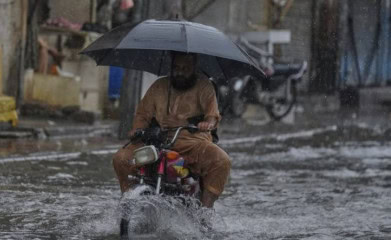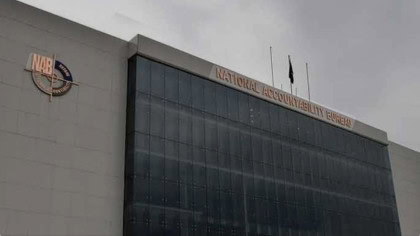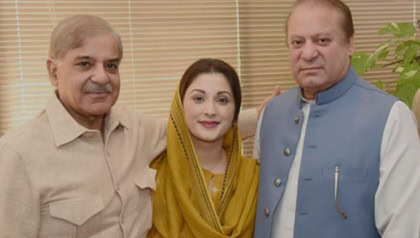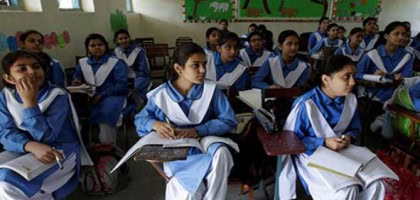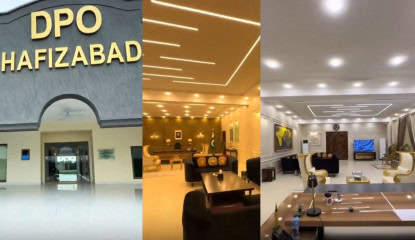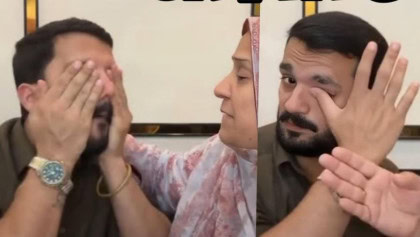National Dialogue on Media & Information Literacy Framework Faisal Zahid Malik highlights media professionals’ role in upholding national interests
Federal Minister for Planning, Development, and Special Initiatives, Prof. Ahsan Iqbal has called for joint efforts by all media houses—print, electronic and social media—to realize and counter the challenges of misinformation and disinformation which are posing real threat to the very fabric of our society.
He expressed these views while addressing as Chief Guest the National Dialogue on Media and Information Literary Framework at the Idara Faroogh-e-Qaumi Zaban. The event was organized by UNESCO in collaboration with Media Foundation 360, SZABIST University Islamabad, and the Department of Digital Media, University of the Punjab, as part of UNESCO’s initiative to strengthen Pakistan’s Media and Information Literacy Policy Framework.
Research Lead of the project and Chairperson of the Department of Digital Media at Punjab University Dr. Savera Mujib Shami conducted the proceedings of the seminar. A roundtable conference was also held on the occasion that was attended and addressed by renowned media persons and journalists of Pakistan including Chairman & Editor-in-Chief of Pakistan Observer, Mr Faisal Zahid Malik, Asma Shirazi, Nawaz Raza, Hamid Mir, Muhammad Mallick, Zafarullah Khan, Aamir Ilyas Rana, Nasrullah Malik and Afzal Butt.
In his keynote address, Ahsan Iqbal committed to present the Media and Information Literacy framework developed through this dialogue to the government for necessary action. Ahsan Iqbal reiterated the government’s resolve to uphold freedom of expression and support media organizations and houses.
The minister called on media organizations to unite and appoint an independent ombudsman to ensure accountability and deter the broadcast of irresponsible content. “There should be strict accountability for those spreading false or harmful information,” he asserted. Faisal Zahid Malik addressing the roundtable highlighted the need for broader social change, including improving primary education systems and addressing the role of older generations in spreading misinformation. He also stressed the responsibility of journalists and media professionals in leading the national conversation on digital literacy and fostering informed citizenship.
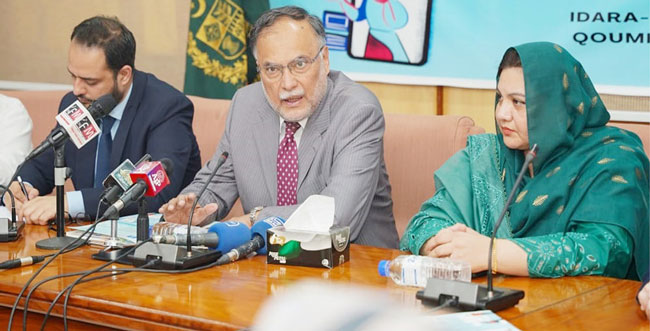
Earlier, UNESCO National Programme Officer, Hamza Sawati, opened the event by welcoming participants, acknowledging partner institutions, and highlighting the critical importance of developing a national MIL framework. Senior journalist Hamid Mir praised the organizers for launching an inclusive and much-needed national dialogue. It is time that journalist community and the government stakeholders should sit together and resolve differences by devising a common strategy, he said.
Muhammad Mallick said it was important to promote media literacy, critical thinking, and responsible digital engagement, especially in today’s rapidly evolving information landscape. Zafarullah Khan hoped that recommendations and insights collected during the session would contribute to inform the development of a comprehensive MIL policy aimed at enhancing digital literacy, reinforcing democratic values, and building societal resilience against misinformation and disinformation.
Dr. Savera Mujib Shami on the occasion presented an overview of the project. She shared the key recommendations gathered from extensive provincial and district-level consultations held across the country. Khusro Pervaiz Khan, Head of SZABIST University Islamabad Campus, also addressed the participants, sharing his support for the initiative and underlining the role of academic institutions in shaping media-literate, critically thinking citizens. He emphasized SZABIST’s commitment to empowering students with strong media literacy and digital responsibility.
Political Counsellor at the Canadian High Commission, Mr. Daniel Arsenault, also addressed the event and commended the efforts undertaken to develop the Media and Information Literacy policy framework. The dialogue featured reflections from prominent senior media professionals including Ms Asma Shirazi, Muhammad Mallick, Amir Ilyas Rana, Hamid Mir, Haji Nawaz Raza, Zafar Ullah Khan and Muhammad Afzal Butt.
They described the initiative as a timely and crucial step toward combating disinformation and promoting responsible media consumption. The event brought together government representatives, academics, media professionals, and civil society members to discuss strategies for tackling the challenges posed by misinformation and disinformation in the country. Participants from diverse sectors including academia, media, and policymaking provided positive feedback on the event.


